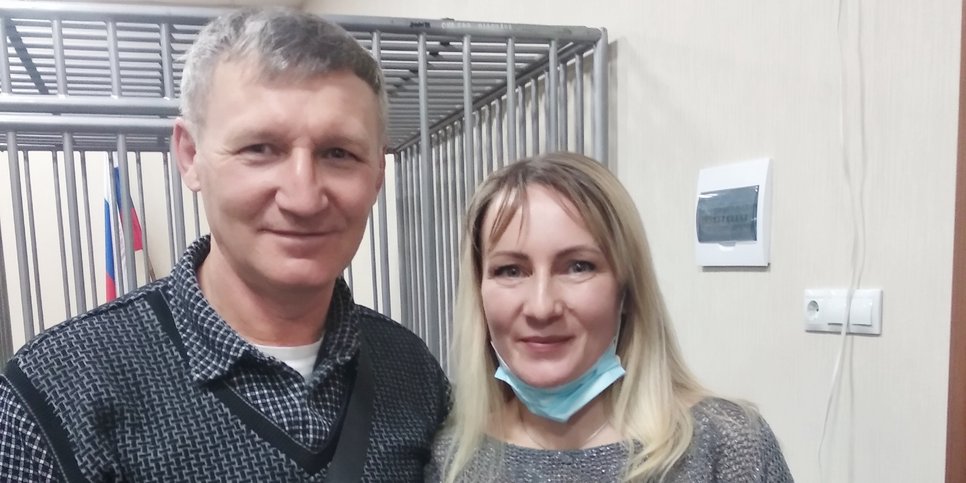In the photo: Anastasia Guzeva with her husband on the day of the appeal
In the photo: Anastasia Guzeva with her husband on the day of the appeal
Appeal Court in Birobidzhan Upholds the Verdict for Faith of Anastasiya Guzeva
Jewish Autonomous AreaOn December 2, 2021, the Court of the Jewish Autonomous Region, composed of the presiding judge I. P. Zhurova, as well as judges A. V. Sizova and V. G. Shabanov, upheld the sentence of Anastasia Guzeva — 2.5 years suspended for reading the Bible and talking on religious topics.
The believer still insists on her innocence and has the right to appeal against the verdict in cassation procedure, as well as in international instances.
Turning to the appellate panel with the last word, Anastasiya Guzeva noted that in a similar case, a court in Vladivostok had acquitted Dmitriy Barmakin.
On August 19, 2021, the Birobidzhan District Court sentenced peaceful believer Anastasiya Guzeva to 2.5 years of suspended sentence, 2 years of probation and 1 year of restriction of freedom. The court considered that participation in peaceful worship of Jehovah's Witnesses and conversations on biblical topics are a continuation of the activities of the banned organization. The believer appealed against the verdict.
Before the criminal prosecution, Anastasiya, together with her husband Konstantin, who was also convicted on the basis of similar charges, worked at a music school. Upon learning of the Supreme Court's decision regarding Jehovah's Witnesses, the manager, a former police officer, summoned the Guzevs to his office and said: "You are extremists, and extremists have no place in a children's institution." So Anastasiya, together with her husband, faced religious discrimination and lost the opportunity to earn a living. For 1 year and 9 months, the believer has been under recognizance agreement.
Russian human rights experts condemn the application of the extremism law to Jehovah's Witnesses. The Commissioner for Human Rights in the Russian Federation in his report back in 2013 noted: “The problem of imperfection of the so-called “anti-extremist” legislation remains urgent. The vague formulation of the basic concept of “extremism” in itself becomes even more blurred when the definition of “religious” is added to it. Even religious scholars cannot yet decide what exactly is considered “religious extremism”. ”
On October 28, 2021, the Plenum of the Supreme Court of the Russian Federation ruled that the divine services of Jehovah's Witnesses, their joint performance of rites and ceremonies, in themselves do not constitute a crime under Art. 282.2 of the Criminal Code of the Russian Federation, despite the liquidation of their legal entities.

